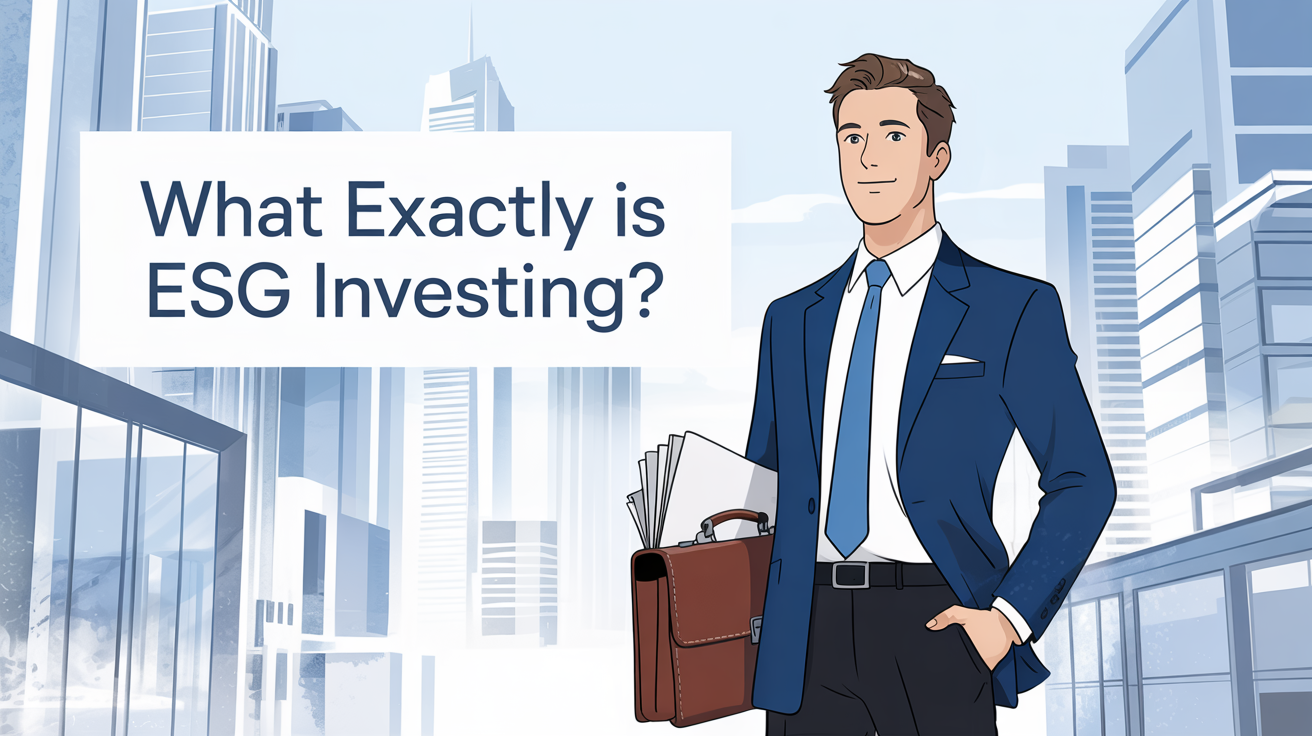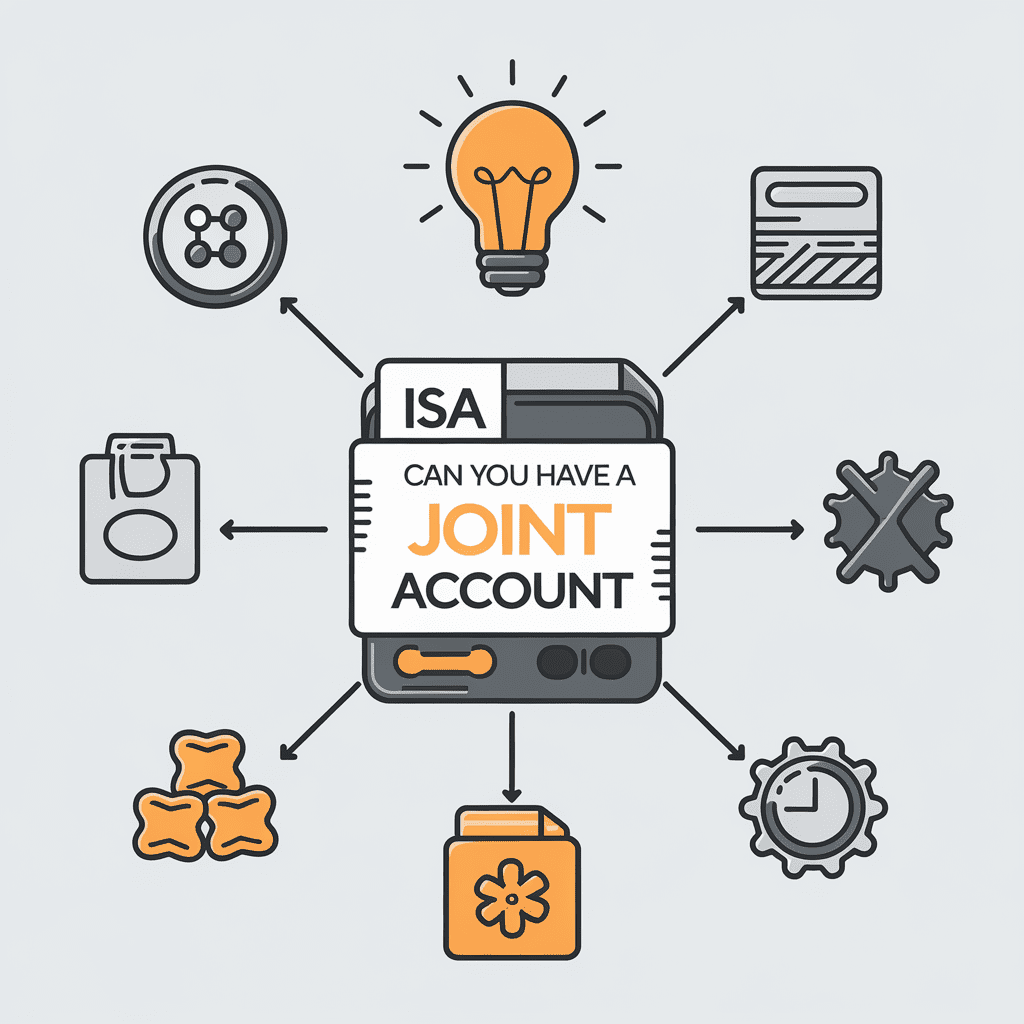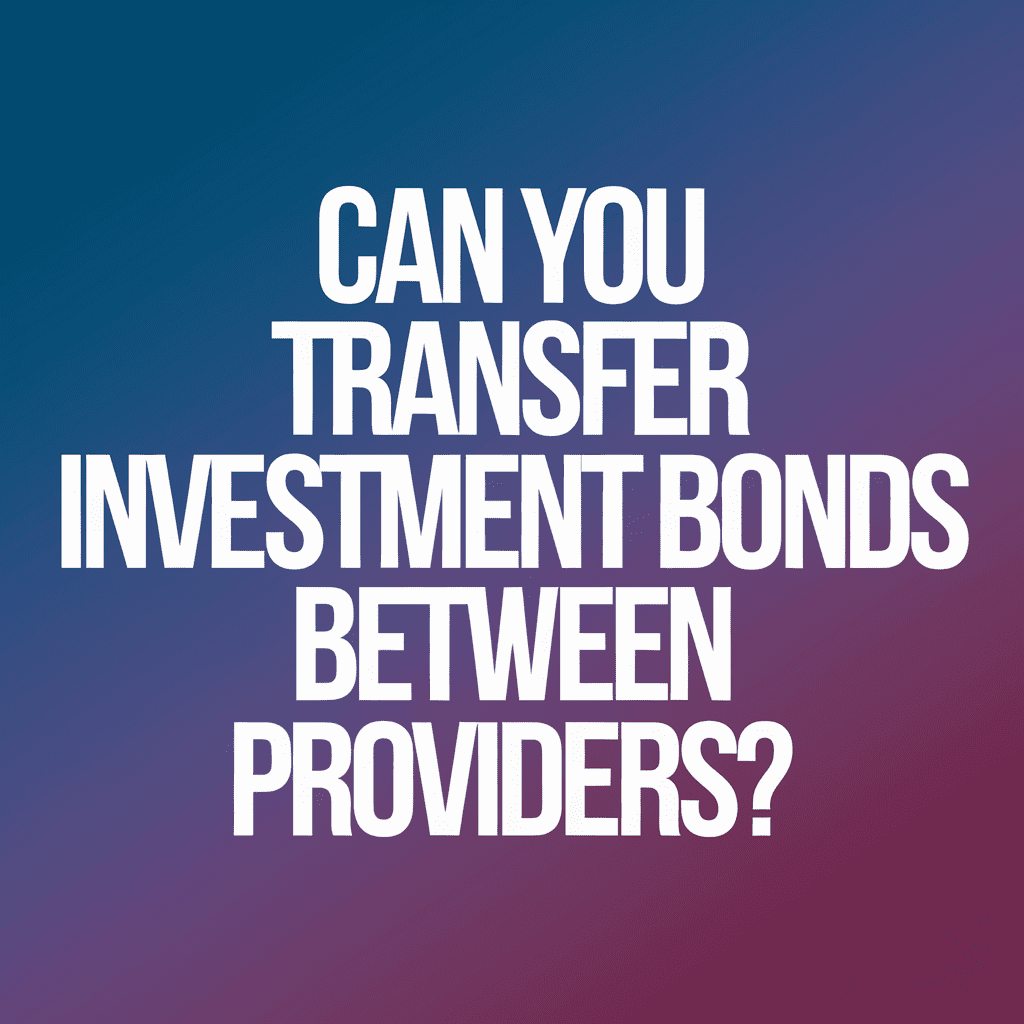Table of Contents
- Introduction to ESG Investing
- What Exactly is ESG Investing?
- The Business Case for ESG Investments
- Key Benefits of ESG Investing
- ESG Investment Performance
- How to Start with ESG Investments
- Common ESG Investment Options
- The Future of ESG Investing
- ESG Investment Specialists
Introduction to ESG Investing
The investment landscape has changed dramatically over the past decade. Investors now look beyond profit margins. They seek companies that care about their impact on the world.
This shift has pushed ESG investing into the spotlight.
UK investors show growing interest in where their money goes. They want profits, but they also want purpose. ESG investing offers both.
Recent data confirms this trend. Global ESG assets are expected to exceed £38 trillion by 2025. This represents more than one-third of all assets under management worldwide.
So why should you invest in ESG? Let’s explore the compelling reasons.
What Exactly is ESG Investing?

ESG stands for Environmental, Social, and Governance. These three pillars form the foundation of responsible investing.
Environmental factors include:
- Climate change initiatives
- Carbon emissions
- Renewable energy usage
- Waste management
- Water conservation
Social factors focus on:
- Employee treatment and wellbeing
- Diversity and inclusion
- Community relations
- Human rights
- Data protection and privacy
Governance factors examine:
- Board structure and diversity
- Executive compensation
- Business ethics
- Corporate transparency
- Shareholder rights
ESG investing means putting your money into companies that score well in these areas. The goal is to generate long-term returns while supporting positive change.
The Business Case for ESG Investments
ESG investing goes beyond feeling good about your investments. Strong evidence shows it makes financial sense too.
Companies with high ESG ratings often show better risk management. They typically face fewer lawsuits, regulatory penalties, and reputation crises.
Consider BP’s Deepwater Horizon disaster. The oil spill cost the company over £49 billion in penalties and clean-up costs. Proper environmental risk management might have prevented this catastrophe.
ESG-focused companies also tend to innovate more. They develop new products and services that address global challenges. This creates new revenue streams and market opportunities.
Unilever serves as a prime example. Their Sustainable Living brands grew 69% faster than the rest of their business in recent years.
Key Benefits of ESG Investing

Investing in ESG offers several advantages for UK investors:
Risk Reduction ESG factors help identify risks that financial statements miss. Companies with poor environmental practices face higher regulatory risks. Those with weak social policies risk consumer boycotts and talent loss.
Long-term Value Creation ESG-focused companies plan for the long term. They invest in sustainable practices that reduce costs and boost efficiency. These companies often outperform their peers over time.
Portfolio Diversification Adding ESG investments to your portfolio provides exposure to future-focused sectors. This includes renewable energy, clean technology, and sustainable agriculture.
Alignment with Personal Values ESG investing lets you put your money where your beliefs are. You can support causes you care about while growing your wealth.
ESG Investment Performance
A common misconception suggests ESG investing means sacrificing returns. Research proves otherwise.
The FTSE4Good UK Index, which tracks UK companies with strong ESG practices, has frequently outperformed the broader FTSE All-Share Index over the past five years.
During market downturns, ESG investments often show more resilience. This happened during the COVID-19 crisis. In the first quarter of 2020, 94% of global ESG funds outperformed their conventional counterparts.
Research from Morningstar shows that sustainable funds delivered higher returns than traditional funds over one, three, five, and ten-year periods.
These performance trends matter for long-term investors. They show that doing good and doing well financially can go hand in hand.
How to Start with ESG Investments
Beginning your ESG investment journey requires research and planning:
Define Your Goals Decide what matters most to you. Focus on environmental issues? Social justice? Corporate ethics? Different ESG funds emphasise different factors.
Research ESG Ratings Use ESG ratings from providers like MSCI, Sustainalytics, or Bloomberg. These ratings help identify companies with strong ESG credentials.
Check Fund Documentation Read the prospectus and annual reports. Look for specific ESG criteria and how they’re applied.
Consider Costs ESG funds sometimes have higher expense ratios. Compare costs across similar funds before investing.
Seek Expert Advice Consult with investment advisors who specialise in ESG investing. They can help create a portfolio that matches your financial goals and values.
Common ESG Investment Options

UK investors have several ESG investment options:
ESG Mutual Funds and ETFs These pooled investments hold a diverse range of ESG-screened companies. They offer easy access to responsible investing with built-in diversification.
Green Bonds These fixed-income securities fund specific environmental projects. The UK government’s green gilts provide a secure way to fund climate initiatives.
Social Housing Bonds These investments fund affordable housing projects. They provide stable returns while addressing housing shortages.
Impact Investing This approach targets specific social or environmental outcomes alongside financial returns. Impact investments directly fund solutions to pressing challenges.
Direct Equity Investments Buying shares in companies with strong ESG credentials gives you direct ownership. This allows for shareholder engagement on ESG issues.
The Future of ESG Investing
ESG investing continues to evolve rapidly. Several trends will shape its future:
Standardisation of ESG Reporting The UK has introduced mandatory climate-related financial disclosures for large companies. This improves transparency and comparability across investments.
Technology-Driven ESG Analysis AI and big data enable more sophisticated ESG analysis. Investors can now track carbon footprints, supply chain practices, and social impacts in real-time.
Increased Focus on Impact Measurement Investors increasingly want to measure their investments’ real-world impact. New tools and metrics are emerging to quantify these outcomes.
Integration of ESG into All Investments ESG factors will become standard considerations across all investment decisions. The distinction between ESG and conventional investing will likely fade.
ESG Investment Specialists
Finding the right partner for your ESG investment journey makes a significant difference.
New Capital Link stands at the forefront of ESG investing in the UK. As a multi-award-winning alternative investment company, we connect qualified investors with premium ESG opportunities.
Our ESG investment approach focuses on:
- Rigorous selection of genuine ESG opportunities
- Due diligence that goes beyond surface-level claims
- Access to exclusive ESG projects not available through mainstream channels
- Inflation-beating returns balanced with positive impact
We work with some of the most innovative companies in the ESG space. This includes firms developing renewable energy solutions and sustainable infrastructure projects.
Our investors receive personal guidance from experienced investment specialists. This ensures your ESG portfolio aligns with both your financial goals and values.
For more information on our ESG investment opportunities, contact us today for a free consultation. Our team can help you navigate this exciting investment space with confidence.
New Capital Link offers access to a selective portfolio of alternative investment opportunities for qualified investors seeking healthy returns balanced with capital preservation. This article does not constitute financial advice. Investment involves risk, and past performance is not indicative of future results. Please consult with a qualified financial advisor before making investment decisions.





